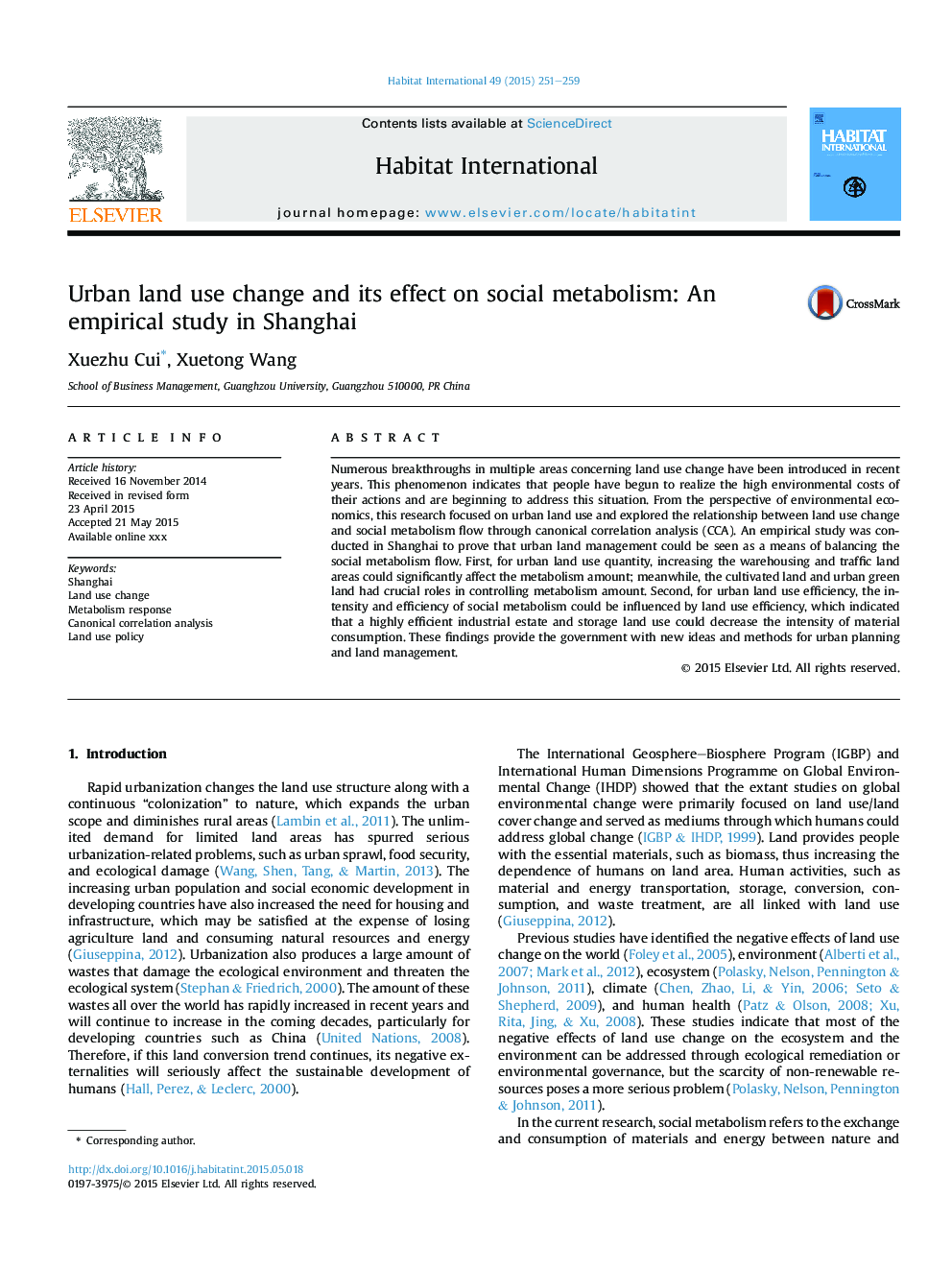| Article ID | Journal | Published Year | Pages | File Type |
|---|---|---|---|---|
| 7456162 | Habitat International | 2015 | 9 Pages |
Abstract
Numerous breakthroughs in multiple areas concerning land use change have been introduced in recent years. This phenomenon indicates that people have begun to realize the high environmental costs of their actions and are beginning to address this situation. From the perspective of environmental economics, this research focused on urban land use and explored the relationship between land use change and social metabolism flow through canonical correlation analysis (CCA). An empirical study was conducted in Shanghai to prove that urban land management could be seen as a means of balancing the social metabolism flow. First, for urban land use quantity, increasing the warehousing and traffic land areas could significantly affect the metabolism amount; meanwhile, the cultivated land and urban green land had crucial roles in controlling metabolism amount. Second, for urban land use efficiency, the intensity and efficiency of social metabolism could be influenced by land use efficiency, which indicated that a highly efficient industrial estate and storage land use could decrease the intensity of material consumption. These findings provide the government with new ideas and methods for urban planning and land management.
Related Topics
Social Sciences and Humanities
Social Sciences
Development
Authors
Xuezhu Cui, Xuetong Wang,
